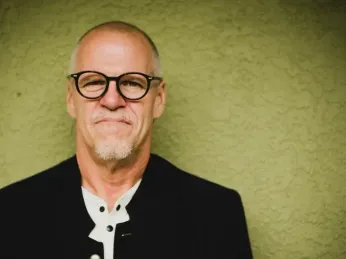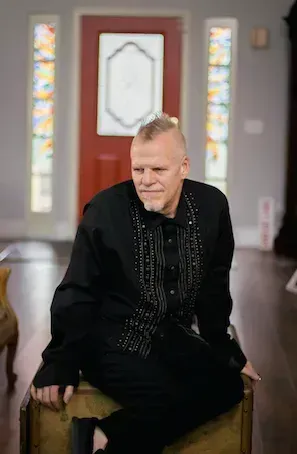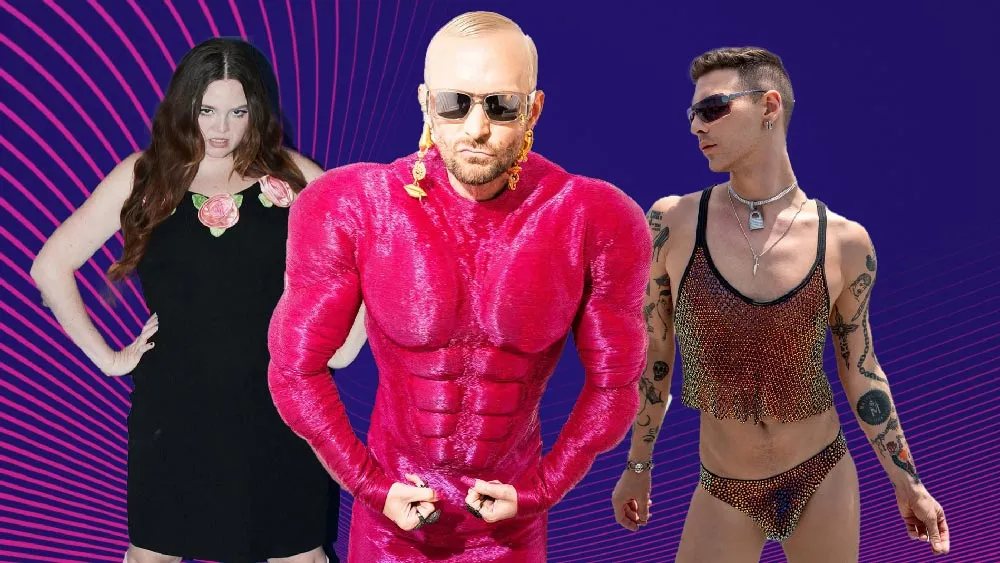
Jun 16
Karel is still here: singer, talk show host and podcaster is still making dance music at 62.
Adam Sandel READ TIME: 1 MIN.
You might have heard Karel, the outspoken talk show host, on KFI or KGO Talk Radio. You might have heard him expound on matters of the day on his Karel Cast podcast. You might have even danced to his music in gay clubs over the past 30 years.
Not only does Karel show no signs of slowing down at age 62, over the next six months he will release a new album of dance tunes, starting with the recently dropped cover of Sylvester’s classic “Do You Wanna Funk?”
In a recent phone interview with the Bay Area Reporter, the energetic entertainer shared his thoughts on the music that shaped him, and why now, more than ever, it’s especially important for our community to gather, meet, and dance.

Do you wanna funk with him?
“In 1982 I was 20, and Sylvester was an icon to me and to many,” recalled Karel. “He released ‘Do You Wanna Funk?’ that year with his musical partner Patrick Cowley. Within six short years, both of them would be gone from AIDS. If you lived at that time, you remember the pain, the frustration, and the sheer terror as a disease ran amok and the government did nothing. But somehow, we danced.
“I wanted to start the new album with ‘Do You Wanna Funk?’ because when it came out, we needed to dance. AIDS was running rampant. Reagan was president. Sylvester gave us an escape. For a few hours we could forget that the world was trying to kill us,” he said, adding, “We need to have fun again.”
For this new cover, Karel got background singer Jeanie Tracy, a San Francisco staple, to sing backup. They produced and recorded the new version in San Francisco as well.
Following the recent release of “Do You Wanna Funk?” Karel has a fresh batch of original songs coming up, which speak directly to our times.
“Next up is ‘You Have to Be Proud (With Hatred So Loud)’ about how now more than ever we must celebrate and be proud of who we are as individuals and a community. Then comes ‘I Dance Because,’ a song about why, at 62, I’m still creating dance music. Because it’s our duty to dance for those we lost too soon to AIDS, senseless violence, hatred and bigotry,” he said.
Coming up are three additional songs which explore Karel’s experiences as a gay man in America over the last 60 years. His recent dance tunes include “Stronger Together,” inspired by the words of Michelle Obama, and “We’re Not Going Back,” which was used throughout Kamala Harris’ presidential campaign.
Get up, get out, and reconnect
Karel spent his formative years in Long Beach, and has lived in Las Vegas since 2017, but he considers San Francisco the home of his LGBTQ community. He sees the events surrounding this year’s Pride as an important time for reflection and reconnection.
“Corporations were never our friends. They pandered to us when it was good for business, but when times got tough, many of them backed off. This is a good time for us to re-center and realize that we only have our own community to rely on,” he said.
“We need to get back into the gay bars, because they provide safety and community. We belong. These places offer a space for us to be safe and talk to other LGBTQ people. We need to patronize them and keep them in business.”
Karel explained a new conundrum to maturity.
“When I was younger, my friends and I would go to the Silver Fox in Long Beach, which catered to an older gay crowd. We’d say, ‘Don’t let me be in a gay bar at 60.’ And now I’m 62 and I want to be in a gay bar!” he laughed.
He has mixed emotions on the topic of straight people who increasingly frequent gay bars.
“I’m torn on it. It’s not our job to discriminate if straight people want to come and enjoy it. But as a gay man, I don’t wanna have to wonder if a guy is straight or not. They come because gay people are a hoot and holler, but when does a gay bar stop being a gay bar?”
Karel is not deterred by the ageism that can exist in our community.
“Releasing dance singles at 62 is about not giving up. As they age, a lot of people move on from being artists. But it’s important to say, ‘I’m still here.’ I wish more older LGBTQ people would stand up and say, ‘I still have a voice and I’m going to use it.’”
Borrowing a phrase from our popular culture, he jokingly adds, “I’m changing my pronouns from has/been to still/here.”
https://www.youtube.com/@ReallyKarel
https://reallykarel.com/

